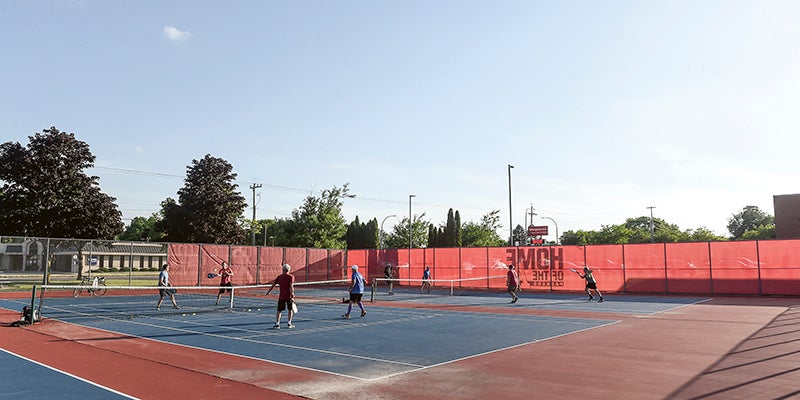Young teachers need mentoring to thrive
Published 9:41 am Thursday, October 30, 2014

Alexandra Schmitz works with a math student in her classroom at Roosevelt High School in Minneapolis. This is Schmitz’s first year teaching. She works with mentors from her school, the district, and the University of Minnesota. Tim Post / MPR News
By Tim Post
MPR (90.1) News
As Minnesota’s Teacher of the Year, Tom Rademacher recently has appeared before a lot of groups around the state.
At many of those stops he is approached by young teachers. After only a few months on the job, they already are at their breaking point. Their main complaint, Rademacher said, is that they can’t find a mentor to give them feedback on their work.
Rademacher, who’s in his ninth year of teaching, is frustrated with what he considers a lack of support in a teacher’s first year.
“We’re still relying on this kind of bizarre sink or swim mentality,” he said.
Minnesota has a problem retaining young teachers. A third of new teachers leave the profession within the first five years, according to data from the Minnesota Department of Education.
Some districts and college teacher preparation programs are working to improve the support they give first year teachers. But research also shows teachers who work with mentors, and receive other forms of support from their schools and districts, are more likely to stick with their careers. That makes them better teachers, and helps their students do better in class.
There are a number of efforts in Minnesota to support first-year teachers, but they’re inconsistent, said Denise Specht, president of the state teachers union, Education Minnesota.
“Everybody does it different,” she said. “Some districts do it better than others, but it’s definitely something that we need to be focused on.”
Specht said the state should concentrate on mentoring and retaining new teachers, especially teachers of color, who leave the profession at higher rates than their white counterparts. Research suggest that might be because teachers of color are more likely to work in so-called “hard to staff” urban schools, where they become frustrated with their working conditions.
Students of color make up 26 percent of Minnesota’s school enrollment, but only 3.5 percent of those leading the classroom are teachers of color.
A study by the National Bureau of Economic Research found that minority teachers are better able to increase the achievement of students of color.
Absent a statewide strategy, several Minnesota districts and teacher preparation programs are trying to increase retention on their own.
In Moorhead, Superintendent Lynn Kovash has hired three retired teachers to mentor young teachers this year.
“While you’re supporting the teacher through a relationship, you’re also helping train them, you’re helping work through best strategies, teaching methods,” Kovash said. “Things that we’re doing in our district that we’ve studied, we know that makes a difference for our students.”
In Minneapolis, mentoring teachers is the core of a new effort. At Roosevelt High School, for example, Alexandra Schmitz, who is in her first year teaching geometry and advanced algebra, works with a mentor from the district on how best to handle a classroom.
Schmitz, 23, also has a teaching mentor who helps her develop lessons. If she needs help, she can invite a fellow teacher to join her in the classroom.
She also is still in contact with mentors at the University of Minnesota, where she received her teaching degree.
“If I ever desperately need somebody you’ve got the list of people I can contact ‘Hey I’m really struggling in this I need some help,’” Schmitz said.





